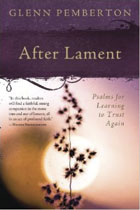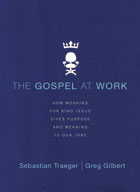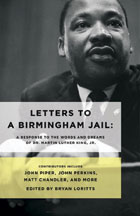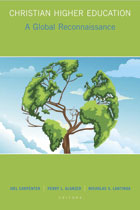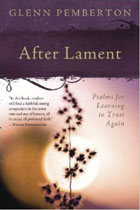
After Lament: Psalms for Learning to Trust Again
Glenn Pemberton (Abilene Christian University Press)
You've endured a hellish period in life, cried out in agony, and now—thank God—the worst is over. Is it possible to move forward with contentment, as though nothing had gone wrong? Pemberton, Old Testament professor at Abilene Christian University, says it's not so simple: "Once violent storms push us into seasons of lament, they do not go away without inflicting lasting damage or at least changing our relationship with the Divine." Building on a previous book (Hurting with God) about his ordeal with chronic pain, Pemberton returns to the Psalms to seek wisdom on emerging from the valley of the shadow of death.
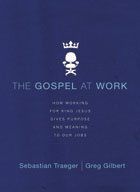
The Gospel at Work: How Working for King Jesus Gives Purpose and Meaning to Our Jobs
Sebastian Traeger and Greg Gilbert (Zondervan)
In The Gospel at Work, a pastor (Gilbert) and a web-savvy businessman (Traeger) team up to produce a primer on placing our jobs under the lordship of Christ. They show that getting straight on who we work for helps us avoid the twin temptations of idolatry (making work the pinnacle of life) and idleness (halfheartedly going through the motions, wondering what it's all about). "Because when glorifying Jesus is our primary motivation," the authors say, "our work—regardless of what that work is in its particulars—becomes an act of worship. We are freed completely from thinking that our work is without meaning and purpose, and we are equally freed from thinking our work holds some ultimate meaning."
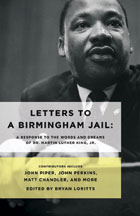
Letters to a Birmingham Jail: A Response to the Words and Dreams of Dr. Martin Luther King, Jr.
Edited by Bryan Loritts (Moody Publishers)
Just over a half century ago, King sat inside a Birmingham prison cell and drafted one of history's most incisive essays on divine justice, racial reconciliation, and Christian brotherhood. King's "Letter from a Birmingham Jail" galvanized the civil rights movement and inspired later generations of politicians, social activists, and church leaders. In Letters to a Birmingham Jail, Loritts, lead pastor at a large, multiracial church in Memphis, gathers eight religious leaders of varying ethnic backgrounds (including John Perkins, John Piper, Matt Chandler, and Soong Chan Rah) to reflect on King's legacy and the ongoing challenge of racial division in the church and the wider society.
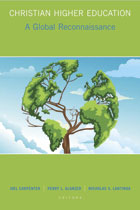
Christian Higher Education: A Global Reconnaissance
Edited by Joel Carpenter, Perry L. Glanzer, and Nicholas S. Lantinga (Eerdmans)
As Christianity has spread beyond its historic strongholds in Europe and North America, Christian colleges and universities have been founded across the developing world. But "very little scholarship," according to Calvin College's Carpenter, "had addressed international Christian higher education, tried to measure its global scope, or engaged the challenges it faces." In this volume, scholars affiliated with the Global Christian Higher Education Project share the results of a research campaign conducted from 2007–2009. The book reports on the health of higher education ventures across the globe: in Kenya and Nigeria; in Mexico and Brazil; in China, India, and South Korea; and in places (like the United States, Canada, and Western Europe) where Christian colleges are already a well-established part of the landscape.

Where the Wind Leads: A Refugee Family's Miraculous Story of Loss, Rescue, and Redemption
Vinh Chung with Tim Downs (Thomas Nelson)
"For most Americans the final image of the Vietnam War was a grainy black-and-white photograph of an overloaded helicopter lifting off from the rooftop of the U.S. embassy in Saigon. When that helicopter departed, my story began." So writes Chung, a dermatologist and member of World Vision's National Leadership Council. Chung was born shortly after South Vietnam fell to Communist control. America's final withdrawal forced his family, along with hordes of other "boat people," to flee the coming oppression. Chung's remarkable memoir tells of perils aboard the South China Sea, rescue by a World Vision Mercy Ship, and resettlement in Arkansas—where, despite hard conditions, he would come to Christian faith and begin climbing an educational ladder that would lead to Harvard University and Harvard Medical School.


